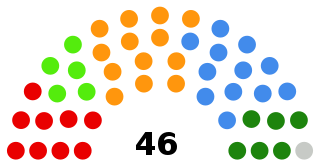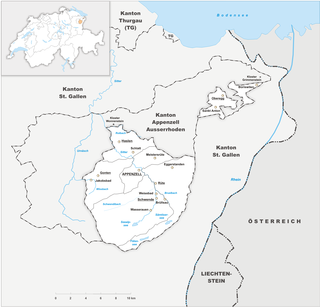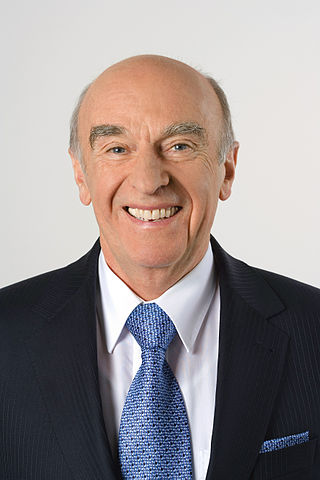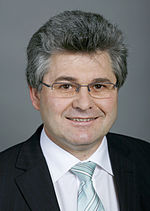
Switzerland is a semi-direct democratic federal republic. The federal legislative power is vested in the two chambers of the Federal Assembly:the National Council and the Council of States. The Federal Council holds the executive power and is composed of seven power-sharing Federal Councillors elected by the Federal Assembly. The judicial branch is headed by the Federal Supreme Court of Switzerland,whose judges are elected by the Federal Assembly.

The 26 cantons of Switzerland are the member states of the Swiss Confederation. The nucleus of the Swiss Confederacy in the form of the first three confederate allies used to be referred to as the Waldstätte. Two important periods in the development of the Old Swiss Confederacy are summarized by the terms Acht Orte and Dreizehn Orte.

The Council of States is the upper house of the Federal Assembly of Switzerland,with the National Council being the lower house. It comprises 46 members.

Appenzell Innerrhoden,in English sometimes Appenzell Inner-Rhodes,is one of the 26 cantons forming the Swiss Confederation. It is composed of six districts. The seat of the government and parliament is Appenzell. It is traditionally considered a "half-canton",the other half being Appenzell Ausserrhoden.

Appenzell Ausserrhoden,in English sometimes Appenzell Outer Rhodes,is one of the 26 cantons forming the Swiss Confederation. It is composed of twenty municipalities. The seat of the government and parliament is Herisau,and the seat of judicial authorities are in Trogen. It is traditionally considered a "half-canton",the other half being Appenzell Innerrhoden.

Reute is a municipality in the canton of Appenzell Ausserrhoden in Switzerland.

Appenzell was a canton in the northeast of Switzerland,and entirely surrounded by the canton of St. Gallen,in existence from 1403 to 1597.

The Christian Democratic People's Party of Switzerland,also called the Christian Democratic Party,Democratic People's Party and Swiss Christian Democratic Party,PCD),was a Christian-democratic political party in Switzerland. On 1 January 2021,it merged with the Conservative Democratic Party of Switzerland (BDP/PBD) to form The Centre,which now operates at the federal level. The Christian Democratic People's Party will continue to exist at the cantonal level as individual local and regional parties determine their status.

Hans-Rudolf Merz is a Swiss politician who served as a Member of the Swiss Federal Council from 2004 to 2010. A member of the Free Democratic Party (FDP/PRD) until the foundation of FDP.The Liberals in 2009,he headed the Federal Department of Finance during his tenure as a Federal Councillor. Merz served as President of the Swiss Confederation in 2009.

The Landsgemeinde is a public,non-secret ballot voting system operating by majority rule,which constitutes one of the oldest forms of direct democracy. Still at use –in a few places –at the subnational political level in Switzerland,it was formerly practiced in eight cantons. For practical reasons,the Landsgemeinde has been abolished at the cantonal level in all but two cantons where it still holds the highest political authority:Appenzell Innerrhoden and Glarus. The Landsgemeinde is also convened in some districts of Appenzell Innerrhoden,Grisons and Schwyz to vote on local questions.
Landammann,is the German title used by the chief magistrate in certain Cantons of Switzerland and at times featured in the Head of state's style at the confederal level.

Carlo Schmid-Sutter is a Swiss politician. Since 1984,he has been member of the cantonal government of Appenzell Innerrhoden. Schmid was a member of the Swiss Council of States from 1980 to 2007,and president of that chamber in 1999/2000. From 1992 to 1994,he presided the Christian Democratic People's Party of Switzerland (CVP/PDC).
The Swiss Confederation comprises the 26 cantons of Switzerland.

Elections to the Swiss Federal Assembly,the federal parliament of Switzerland,were held on Sunday,21 October 2007. In a few cantons,a second round of the elections to the Council of States was held on 11 November,18 November,and 25 November 2007. For the 48th legislative term of the federal parliament (2007–2011),voters in 26 cantons elected all 200 members of the National Council as well as 43 out of 46 members of the Council of States. The other three members of the Council of States for that term of service were elected at an earlier date.
This local electoral calendar for the year 2010 lists the subnational elections held in 2010 in the de jure and de facto sovereign states. By-elections and sub-national referendums are also included.
Women in Switzerland gained the right to vote in federal elections after a referendum in February 1971. The first federal vote in which women were able to participate was the 31 October 1971 election of the Federal Assembly. However it was not until a 1990 decision by the Federal Supreme Court of Switzerland that women gained full voting rights in the final Swiss canton of Appenzell Innerrhoden.
The 2023 Swiss federal election will be held on 22 October 2023 to elect all members of the National Council and Council of States of Switzerland. It will be followed by elections to the Federal Council,Switzerland's government and collegial presidency,on 13 December.












